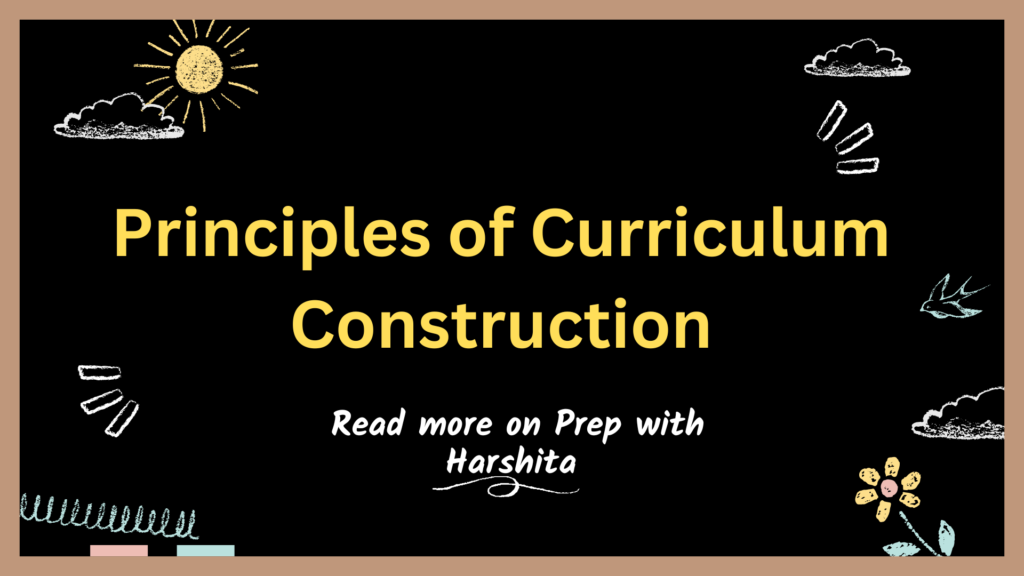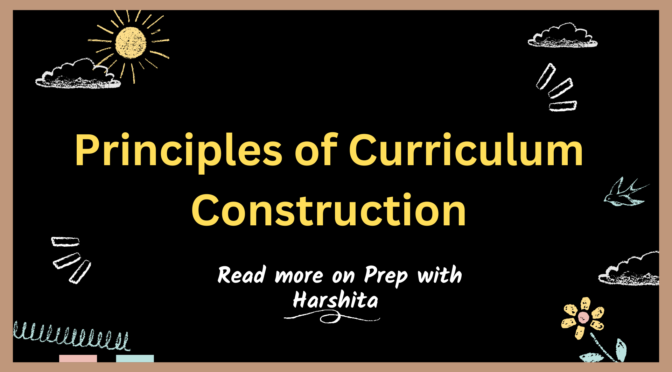The success of a curriculum depends on certain principles, which need to be born in mind while developing a curriculum. Principles of Curriculum Construction make sure that an effective curriculum is developed.
The principles of Curriculum Construction are:
i) The purpose of the Educational Objectives of the Programme should be fulfilled.
The curriculum should be aligned with the desired learning outcomes or objectives. The learning objectives should be clearly defined and should guide the selection of content, instructional strategies, and assessments.
ii) The educational objective should be stated in clear, unambiguous, and behavioral terms, which should be achievable and measurable.
iii) The third principle is that the students and teachers of the particular educational program should have a clear perception of the expected results i.e., objectives as well as purpose of the educational program
iv)The fourth principle is that the learning activities provide learning experiences related to the theoretical, practical, and clinical components and Construction.
v) The fifth principle is that the teaching-learning activities should relate to classroom activities, clinical fields, and community.
vi) The curriculum should be relevant and applicable to the needs and interests of the learners. It should be designed to meet their specific learning needs and to help them achieve their goals.
vii)Flexibility: The curriculum should be flexible enough to accommodate different learning styles and preferences, as well as different levels of prior knowledge and experience.
viii)Reflection and evaluation: The curriculum should be regularly reviewed and evaluated to ensure that it is meeting the needs of the learners and the goals of the program. The evaluation should include both quantitative and qualitative data and should involve input from both learners and teachers.
Also Read: Prep with Harshita



Can you be more specific about the content of your article? After reading it, I still have some doubts. Hope you can help me.